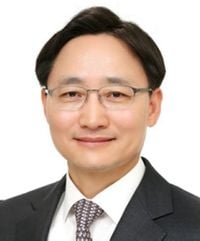On June 26, President Lee Jae-myung nominated Im Kwang-hyun, a seasoned tax administration expert and Democratic Party lawmaker, as the next Commissioner of the National Tax Service (NTS), marking a significant step toward comprehensive tax reform under the new government.
Im’s nomination signals the government's commitment to overhauling the tax system with a focus on fairness, transparency, and modernization. As the former Deputy Commissioner of the NTS and Director of the Seoul Regional Tax Office, Im brings a wealth of experience from both the bureaucratic and legislative arenas, uniquely positioning him to bridge policy and practical administration.
Chief of Staff Kang Hoon-sik highlighted Im’s expertise, noting that he "will contribute to fair taxation and taxpayer protection, drawing from his broader perspective gained through activities in the National Assembly's Planning and Finance Committee." This blend of hands-on tax enforcement and legislative insight is rare and highly valued, especially as the government pursues reforms that balance rigorous tax collection with taxpayer rights.
Born in 1969 in Hongseong, Chungcheongnam-do, Im graduated from Gangseo High School in Seoul and Yonsei University with a degree in economics. He passed the 38th Administrative Examination and devoted his entire public service career to the NTS. His early career included a stint at the Cheong Wa Dae Economic Policy Secretary Office during the Roh Moo-hyun administration, followed by a notable tenure during the Moon Jae-in government where he served as Director of the Seoul NTS Investigation Bureau 4, a role often described as the "corporate tax enforcer."
Im’s reputation within the NTS is formidable. He is known as a "master of investigation," having consecutively held six investigation bureau director positions, a record-setting achievement. His leadership extended to key posts such as Director of the Seoul Regional Tax Office and Deputy Commissioner of the NTS. He retired honorably in July 2022, shortly after the Yoon Suk-yeol government took office.
Following his retirement, Im founded the tax law firm "Selection" and the tax research institute "Tax and Future," signaling his ongoing dedication to tax policy and reform. In February 2024, he formally joined the Democratic Party through its talent recruitment program and was elected as a proportional representative in the 22nd National Assembly general election. Within the legislature, he has been active on the Planning and Finance Committee and served as vice-chairman of the Democratic Party Policy Committee.
His political journey was partly motivated by concerns over the previous administration’s tax policies, which he perceived as favoring the wealthy and exacerbating social inequality. Im criticized the Yoon government’s "rich-friendly tax policies" and welfare budget cuts, which propelled him into politics with a mission to restore fairness and balance.
As a lawmaker, Im has championed tax reforms centered on the middle class, advocating for expanded income tax deductions for wage earners, improvements to financial investment income tax, and raising the lump-sum inheritance tax deduction. These initiatives align with the Lee Jae-myung administration’s core goals of fair taxation and rebuilding public trust in the tax system.
Im’s nomination is also seen as a strategic move to foster political stability and cooperation. If confirmed, he would become the first incumbent lawmaker to serve as NTS Commissioner, a role traditionally filled by career bureaucrats. His ability to navigate both the administrative and political landscapes is expected to facilitate smoother dialogue with the National Assembly, especially as he faces a confirmation hearing likely scheduled for early July 2025.
The confirmation hearing is anticipated to focus on several hot-button issues, including the ongoing debate over corporate tax rates and wealth taxation. Given the administration’s stance on strengthening tax justice for high-income earners, Im’s views on adjusting corporate tax rates and reforming inheritance and gift tax structures will be scrutinized. Additionally, concerns about the potential abuse of tax investigation powers and the protection of taxpayer rights will be central topics.
Another critical area of discussion will be the government’s ambitious "digital tax transformation" agenda. Im’s experience during the COVID-19 pandemic—when he institutionalized regular field consultations with taxpayers as Seoul Regional Tax Office Director—demonstrates his commitment to flexible and responsive tax administration. His leadership in strengthening enforcement against tax evasion by large corporations and wealthy individuals further underscores his balanced approach.
Within the NTS, Im’s nomination was met with a sense of inevitability, given his extensive service in top-tier positions and his strong internal support. Analysts view this appointment as reflecting the government’s intent to promote internal stability through the elevation of a trusted, experienced insider.
Im’s profile is impressive: besides his economics degree from Yonsei University, he completed the International Tax Program at Harvard Law School, enhancing his global tax expertise. His career path includes roles such as Director of the Seoul Tax Office International Investigation Division 3, NTS Investigation Planning Director, Seoul Tax Office Audit Officer, and multiple investigation bureau directorships across various regions.
His deep understanding of the challenges posed by the digital economy, shifting global tax environments, and the need to secure a robust tax revenue base makes his leadership crucial at this juncture. The NTS faces long-term hurdles, and Im’s tax philosophy and administrative skills are expected to shape the agency’s evolution significantly.
As the new government embarks on its tax reform journey, Im Kwang-hyun’s appointment embodies a blend of expertise, political savvy, and commitment to fairness. His confirmation and subsequent leadership will be closely watched by taxpayers, lawmakers, and the broader public eager to see how the NTS balances enforcement rigor with taxpayer rights in an era of rapid change.

